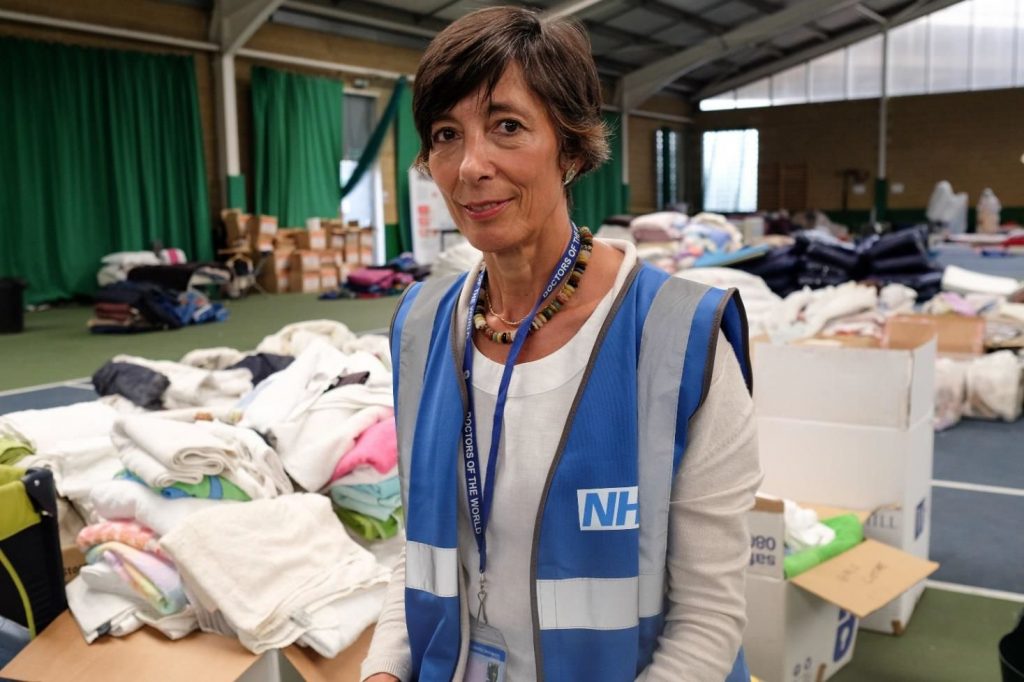Former Master of Public Health (MPH) student Natasha Kassami wrtes about her MPH research project.
“According to the World Health Organisation (WHO), Non-Communicable Diseases (NCDs) currently constitute the largest share of deaths worldwide (38 million deaths each year) with nearly three quarters of these deaths occurring in low- and middle-income countries (LMICs). Among these, cancers constitute the second largest proportion of NCD deaths and it has been suggested that a disproportionate amount of this burden falls on women in these regions who face the challenge of gender inequality in addition to the lack of access to cancer care, which results from their geographical predisposition.
It is fair to say that for a long time, I was relatively ignorant of the threat NCDs like cancer posed to low-resource populations. My attention was always drawn to infectious diseases like malaria, HIV/AIDS, TB, which have been the focus of public health campaigns in Uganda for many years. Needless to say I had suffered from Malaria countless times as a child in Uganda. My final year MPH dissertation came around the same time the threat of cancer became real to me. It was towards the end of the second semester of my Master’s program that I found out my hero, mentor and the head of my family, my father was being treated for colorectal cancer. His illness was an apt reminder of the significance of the research I was doing for my final year dissertation. That and the constant support and encouragement I received from my supervisors, Dr. Lesong Conteh (Senior Lecturer in Health Economics, Imperial College London) and Dr. Ophira Ginsburg (Medical Officer, World Health Organization, Geneva, Switzerland) and Dr. John Tayu (Assistant Professor, National University of Singapore), prompted me to work tirelessly on the summer project, which was a Systematic review on the ‘Economic Burden of breast and cervical cancers in LMICs’.
The review generated a landscape analysis, of sorts, for the current state of economic literature on the burden of these cancers in LMICs. We focused on these two cancers as they are the predominant causes of cancer morbidity and mortality in women around the world. Through our review, we identified several gaps in the research in low resource settings in comparison to High Income Countries (HICs). For example, while there is a growing evidence base on the cost effectiveness of specific interventions to address breast and cervical cancer in low-income countries (LICs), there is a paucity of studies evaluating the wider economic burden of breast cancer at both the household and the national level. Which suggests that the full economic cost of women’s cancer has not yet been realised. Furthermore, there is little research on the cost of advocacy, primary and secondary prevention of breast cancer in LMICs and the economic implications of a diagnosis in the younger, more productive years of a woman’s life are vast and rarely estimated in the literature.
Through the persistence of my amazing supervisors this study was able to have a greater impact than I could have ever achieved on my own, with its findings contributing to a paper on “The global burden of women’s cancers: a grand challenge in global health” which in turn was part of “The Lancet Series on ‘Health, Equity and Women’s Cancers’. The series, which was spearheaded by Dr. Ginsburg featured contributions of many formidable names in Cancer policy and research. Our paper in the series described the burden of breast and cervical cancer in relation to mortality, incidence survival and their implications on socioeconomically disadvantaged women (a subject Dr. Conteh and I contributed towards). I’m forever indebted to my supervisors for ensuring our work that summer was not shelved away and for pursuing it even after I graduated from the School of Public Health. We are currently working on publishing the original Systematic Review.”
Read The economic burden of breast and cervical cancers in low and middle-income countries in full


 Professor Christopher Millett and Dr Anthony Laverty from the Public Health Policy Unit at Imperial College London contributed to a ground-breaking
Professor Christopher Millett and Dr Anthony Laverty from the Public Health Policy Unit at Imperial College London contributed to a ground-breaking